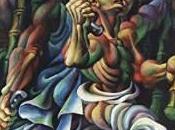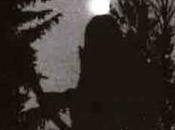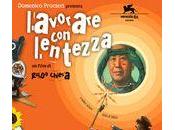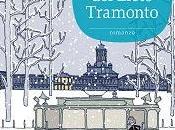
Interview with Joe R. Lansdale
[Alessandro Manzetti] You have defined your land, Texas, as a state of mind. Would you describe this feeling? Could we imagine your writing as a magic door to enter in this special reality, made up of large spaces and small realities lost in the void?
[Joe Lansdale] I just write the story I want to tell. I don't think about much else when I'm doing it. I always try to enjoy whatever I'm writing
[AM] How were created the characters of Hap and Leonard, protagonists of several of your novels? They represent closely your country, and symbolize two different and distant points of view of reality. They seem to be born through a complex narrative project, not by intuition, Am I wrong? How much space does the intuition take in your work?
[JL] They were actually born through intuition, but that doesn't mean it isn't difficult to present that in a convincing manner. They are natural outgrowths of my personal experiences and storytelling. The idea is to make things look simple, and to read simple, even if a lot of work went into them. They do reflect ideas and thoughts that I have about my country. I love this place, and I love East Texas in particular. I like to think I see both the good and the bad.
[AM] The irony that emerges in your work, which you use within the various genres that you measured with, including facing with sensitive social issues, is only way of your writing or is your personal interpretation of reality as well?
[JL] I think it's pretty close to my personal interpretation

[AM] In your novel The Big Blow you tell a story connected with the arrival of one the most terrible hurricane in history, which in 1900 destroyed the city of Galveston, in your Texas. This time your book is not just fiction, tells a historical event. The hurricane seems to have a mission, sweeping away classism and bloody racism, represented by two boxing champions that clash with their muscles, ideas, skin. Why did you want to tell the story of Galveston? How would you tell the story of hurricane Katrina and the destruction and looting of New Orleans?
[JL] I think the story of Katrina would actually have been very similar. Disasters bring out the best and the worst in people
[AM] Mucho Mojo, the second novel of Hap and Leonard series, a noir novel that contains many elements of horror, crime story, also western, is characterized by constant dialogue and plot twists, cleverly rendered by irony, and animated by characters in the flesh The narrative structure makes us think of a script, to the movies. We read and see. What is the line between novel and screenplay?
[JL] When I write a novel I don't think of it as being a movie. It's a novel. But my influences are not only books but films and comics. I think a novel is one thing and a film is another, but that can be misunderstood by film makers who throw out the whole thing to produce something of their own. I hate it when I hear someone tell me they're going to make something of mine into a film, keeping the spirit of the novel. That usually means you're screwed.

[AM] The Nightrunners is a black story that makes you take a sudden journey to the degradation, to the depths of the human mind, the madness. In this novel, the irony leaves way to cruel interpretation of human evil. You show us a Hell that stands behind the door. The novel condenses sex, violence, degradation, how much of Clockwork Orange is there in this story? How did you come to think of the image of the black Chevrolet that emerged from the darkness with his killers?
[JL] The car popped up and seemed right for the novel, but, I'm a little uncertain now where it came from. The idea of mobility and suddenness seemed to fit the idea of it all being brought to us by automobile. I wasn't aware of Clockwork Orange, but I certainly read the book many years ago, so the elements may be there. I think Straw Dogs, the film, and the Seige of Trencher's Farm (Gordon Williams), on which it was based, are the influences I was aware of.
[AM] In your novel The Bottoms there are other typical issues of your writing, a portrait of the of the Texas society in the thirties, racism, epic revisiting of the childhood, the struggle between good and evil, the dark side well characterized by the dark figure of the monster, the goat man. The novel is a social thriller with great balance, offering a truly original and realistic insight into American society. What is the real America? The one of the great depression or of the American dream, the one of the Ku Klux Klan or Luther King, the one of death penalty or the freedoms and civil rights?
[JL] It's all those things, and more. As a novelist writing a crime story, those are the things I focus on, but not everyone is like that. Most people are good hardworking people who just want to get along in life, but I'm writing mostly about the negative things, but they are not meant to represent all of Texas, or the US

[AM] In A Fine Dark Line the main character, Stanley, has to cross the dividing line between the world of carefree youth and the awareness of the adult and violent world. In the novel are evident the melancholy of the past that will never return, and the use of your childhood memories. What is the secret of telling a story through the eyes of a child? Can you tell us about the moment when you too crossed that line, and then finally passed it?
[JL] For me there were many moments, and in time, all those moments did the trick. In fiction, you're usually pointing to one moment and saying this was it, but that's symbolic. That moment usually arrives by means of other subtle moments that weren't so immediately important
and now, two Horror Street classic answers:
[AM] In this heading we try to learn about new landscape of horror literature, through direct experience of the authors. What are the new trend of horror? Could you name some new authors who are conducting original projects?
[JL] There are many, but Tim Lebbon leaps to mind. And there is a very good collection of short stories by Trent Zelazany that I read recently
[AM] We leave the reader to imagine of walking along a dark and lonely road going back home, and having to turn the corner. What (or who) does he find around the corner?
[JL] That depends on the individuals

Guest Profile
Joe R. Lansdale (Gladewater 1951) has written over twenty novels and over two hundred short stories. He has received many awards, including the Edgar Award and the Bram Stoker Award (six times). Among his novels: The Nightunners (1987), The Drive-In: A "B" Movie with Blood and Popcorn, Made in Texas (1988) Savage Season (1990), Mucho Mojo (1994) Cold in July (1997) The Bottoms (2000), The Big Blow (2000), West Zeppelin (2001), A Fine Dark Line (2002), Bad Chili (2003) The Drive-In: The Bus Tour (2005), Flaming London (2006), Lost Echoes (2007), Vanilla Ride (2009), Red Devil (2010), Lansdale lives in Nacogdoches with his wife Karen, writer and editor, and sons Keith and Kasey.Web Site

(Interview by Alessandro Manzetti)
leggi l'intervista in italiano






